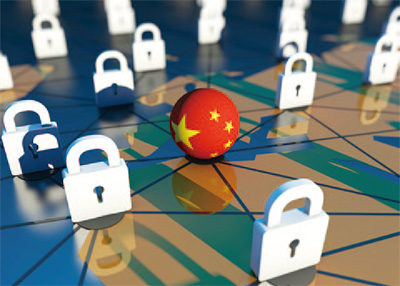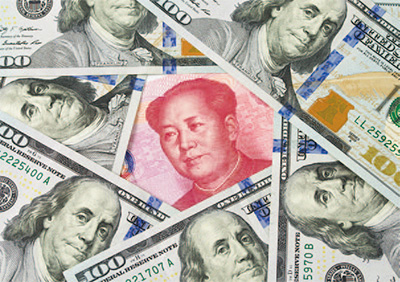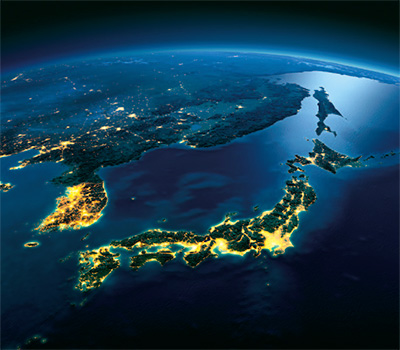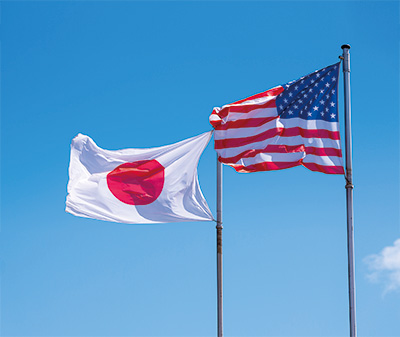5 Battlegrounds for U.S.-China Cold War
Part 3. How Should Japan Respond to the New Cold War?
How Should Japan Respond to the New Cold War?
As the U.S. and China clash over the 5 battlegrounds of trade, technology, finance, space and ideology, Japan must come up with her own plan of action.
(Trade, Technology)
Q: How can Japan protect her technology from China?
A: By strengthening investment and export regulations.
The Japanese government and businesses are also victims of China’s cyber hackings and economic espionage. Now there is a need for mutual acknowledgement of this situation between the bureaucratic and private bodies, to create an effective countermeasure.
The U.S. responded to China’s misappropriation of intellectual property by extending regulations on foreign investments in the U.S. Japan must likewise revise and extend the Foreign Exchange Law to keep a closer watch. They should also prohibit the use of Huawei and ZTE services among government workers, and warn the citizens of the two companies’ misuse of personal information.
Japan should also place stricter limitations on international student visas in the field of advanced technology so that information doesn’t get stolen from research partnership programs. Inspection units specializing in the investigation of China’s economic espionage in private businesses should also be setup.
Countering cyber-attacks require not just the reinforcement of cyber security in private businesses, but a greater effort by the government to protect these companies from attack.

(Finance)
Q: How should Japan respond to China’s economy?
A: By switching the Chinese Yuan to the floating exchange-rate system.
The U.S. Secretary of the Treasury, Steve Mnuchin, says that, “We’re going to very carefully review whether they [China] have manipulated the currency.” The devaluation of China’s currency leads directly to the U.S. trade deficit.
This is the same for Japan: if China is artificially devaluing the Yuan, it will contribute to a trading loss. Japan should join the U.S. in stopping China’s currency manipulation by pressuring them to switch to the floating exchange-rate system and thus let the market decide the currency exchange rate.
If this happens, China will try to stop the Yuan collapse by requesting a central bank liquidity swap, but Japan must not comply. The move would provide liquidity in U.S. dollars to the Chinese market.
With China’s “One Belt, One Road” policy of infrastructure investment in developing nations, the Chinese Yuan is slowly becoming accepted as a world currency. To resist this the Trump administration announced in July their plan to establish a fund to support infrastructure investments in countries around the Indian and Pacific Oceans. Japan should endorse these moves while setting up her own support funds.

(Space)
Q: How should Japan prepare for the space war?
A: Through proactively investing in the space industry.
After the revision of Japan’s Basic Space Law in 2008, the country has been allowed to use space for security purposes. Universities and research institutions, however, are obstinately refusing to “cooperate with the military.”
What Japan needs to do is to raise a nation-wide awareness that space can be used for defense purposes.
To use space for defense, Japan would need to develop space technology, while also expanding the defense budget by at least 100%.
Japan needs to proactively invest in aeronautical, space and defense developments including manned space shuttle technology, artificial satellites, cyber measures, AI technology, etc.

(Ideology)
Q: What ideology is important for winning the New Cold War?
A: To spread “freedom, democracy and faith” around the world.
Japan has been too politically considerate towards China, ignoring the government’s infringements of human rights and religious persecutions. It is not surprising that Chinese anti-Establishment activists find Japan an unattractive destination for seeking political asylum.
Nor is it surprising that Japan has often been excluded from America’s list of potential allies for international proposals tackling China’s human rights problem.
Now that the U.S. is showing a readiness for a frontal face-off with China, Japan must join them to bring an end to China’s military dictatorship.
Master Ryuho Okawa, Founder and CEO of Happy Science, said in his lecture “Fulfilling Our Noble Obligation”, given in May:
Our aim for the future should be for freedom, democracy and faith to unite with politics . . . Faith is imperative. We need a ground for justice above that which is made by people. Only by protecting religious freedom can we give meaning to the idea of human rights.
Japan and the U.S. must take leadership to create a prosperous future built upon the values of freedom, democracy and faith.




















